Iran's teachers' leaders warn of jail threat
- Published
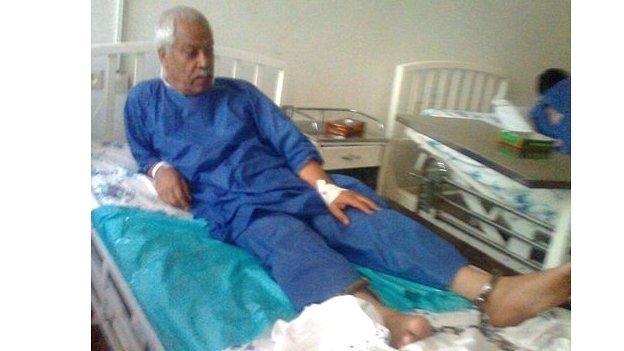
Iranian teachers' leader Hashem Khastar says he has been imprisoned three times
A teachers' union leader in Iran has warned of an intensifying campaign of harassment and imprisonment by the Iranian authorities against teachers' union representatives.
Hashem Khastar, from Mashhad in north-east Iran, says there have been hunger strikes staged by teachers in protest against jailings and the denial of human rights.
Mr Khastar, from the teachers' union in Khorasan Razavi province, says he has been jailed three times.
He says this followed his defence of the right of teachers to belong to an independent union and that he was jailed for "trying to bring out the voice of the innocent teachers of Iran".
"The teachers want, through this teachers' movement, to achieve democracy," he says.
The Iranian authorities have so far not commented on the claims made to the BBC about the treatment of teachers' representatives.
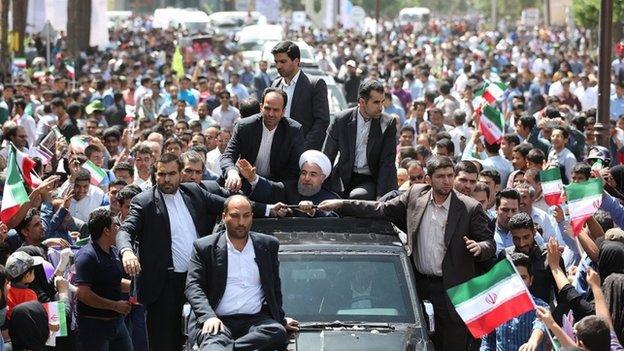
Iran's president Hassan Rouhani: International groups have called for respect for union rights
Speaking out about the threats to teachers, Mr Khastar says he remains aware of the risks and is "always prepared for the doorbell to ring and for someone to come and take me to prison".
"If it wasn't for the support of many teachers, they would have got rid of me."
He says teachers have been secretly rallying to help their imprisoned colleagues by doing things like raising funds to support their families.
The problems are also being highlighted by Education International, an international representative group for education unions.
"We know a range of people have been arrested," said the organisation's deputy general secretary, Haldis Holst.
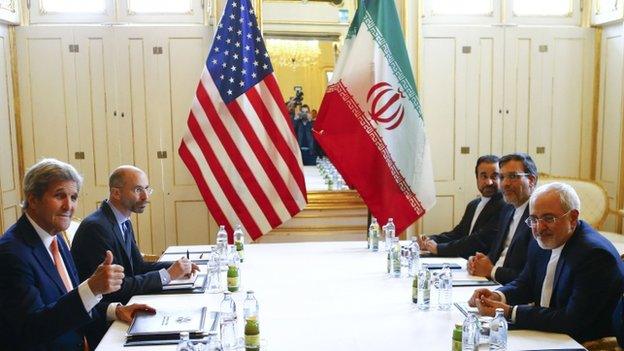
US and Iranian foreign ministers held talks in Vienna as part of a wider rapprochement
But she says it is hard to know numbers or the specific details of cases across Iran, because "most of the leadership is in prison or in exile".
The international body had invited a Tehran teachers' union representative to talk at a conference earlier this year, but she says that teacher had been arrested and detained.
There have been further reports of some teacher prisoners being released, but without certainty about whether charges are being dropped or whether they still face renewed detention.
A statement from the Iranian Teachers' Trade Association (ITTA) says: "We do not accept security charges for civil activists. We believe that no teacher should suffer imprisonment for pursuing civil and educational matters. Prison must not be the answer to teachers' demands."
Mr Khastar says that despite Iran's growing international links with the West - and signals of a growing economic openness - the situation for teachers' unions was not improving.
He says there are no signs of moderation over the rights for his union members.
"There is a big rift between the government and clerical authorities - but the goal of both factions is to save the regime in its entirety," he said.
And he says that as the regime came under more pressure, it was increasing its repression.
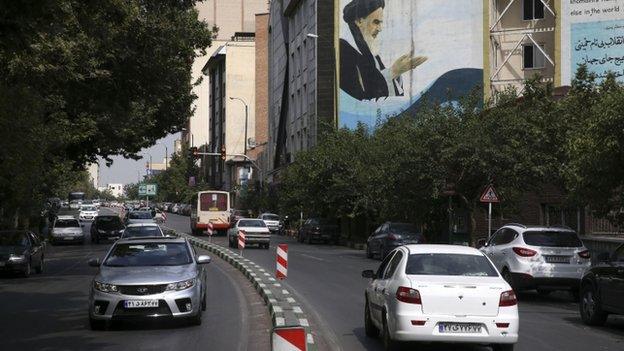
Teachers' leaders claim that they are under threat from the Iranian regime
"They want one leader - one person is a shepherd and everyone else the sheep. In this system, the people must follow without questioning."
Mr Khastar says teachers are being "constantly arrested", but on many occasions their union organisations only find out later.
He says security services are putting pressure on teachers' families not to publicise what has happened.
But he says teachers are still campaigning to be allowed to carry out their union activities and to promote civil liberties "free of security interference".
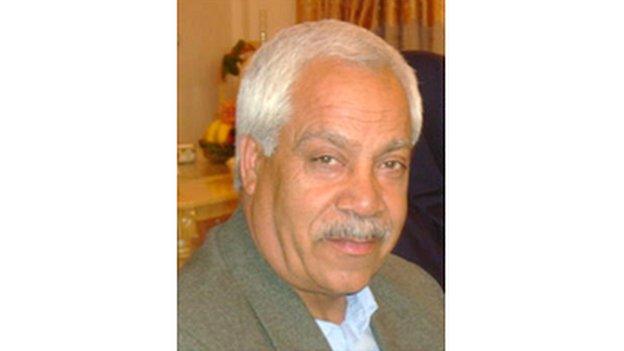
Hashem Khastar says there are no signs of a more moderate approach to teachers' unions in Iran
"We want the regime to allow teachers to carry out their activities as is their right."
And he believes there is widespread support for their cause. "The Iranian nation has changed," he says.
The UK's Trades Union Congress has called on the Iranian government to respect the rights of teachers and criticised the imprisonment of their leaders.
They have highlighted teachers' protests against "poverty wages", poor living conditions and the lack of job security.
This week a World Humanitarian Summit, convened by the United Nations and attended by global political leaders, will also hear calls for greater protection for teachers.
And there will be a push for a Safe Schools Declaration, which calls for education to have a protected status in places of political violence.
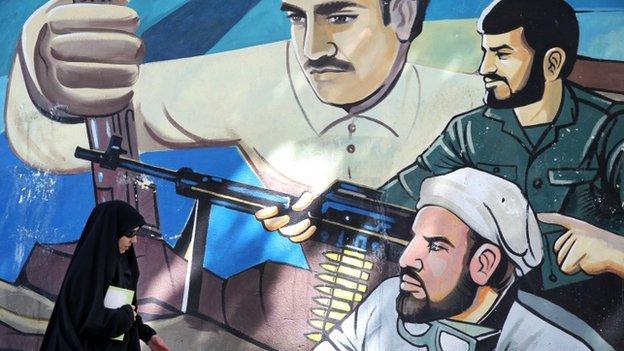
Tehran mural: Teachers can face a "double pressure" in Iran, says Education International
So why are teachers being targeted in Iran?
Ms Holst says that teachers often face a "double pressure".
In many countries, teachers are members of teachers' organisations and trade unions - and they can become caught in attempts to suppress such independent bodies.
But she says that "teachers are often a target group" for regimes which want to impose their own values on the public.
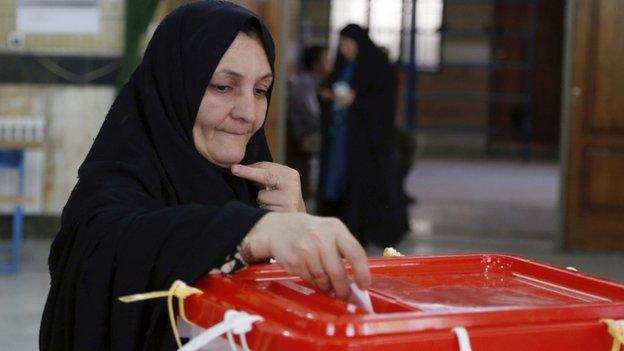
Voting in this year's elections in Iran
As a profession that discusses and helps to form ideas, she says teachers can become a "target for control".
Ms Holst says Education International has formally protested to the Iranian government, but has had no response. The organisation's annual conference has condemned the regime for the number of teachers "languishing in Iranian prisons".
"What they are doing is clearly a breach of union rights and human rights."
She says that it has been "difficult for some time" for teachers' unions in Iran, but "the evidence suggests the situation is getting worse".